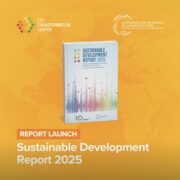Beijing has fired a significant salvo in the ongoing trade war with the United States, announcing a 34% tariff on all U.S. goods effective April 10, according to a statement from China’s finance ministry. The move marks a dramatic escalation in tensions between the world’s two largest economies, following the U.S.’s recent decision to raise duties on Chinese imports to 54%.
The announcement, reported by Reuters, sent shockwaves through global financial markets, with U.S. stock futures plunging in response. The Dow Jones Industrial Average futures dropped over 1,000 points, while the S&P 500 and Nasdaq saw steep declines, reflecting investor fears of a deepening economic rift. Analysts warn that this tit-for-tat tariff battle could further disrupt supply chains, increase consumer prices, and heighten the risk of a global recession.
China’s finance ministry framed the tariffs as a retaliatory measure, citing the need to protect its domestic industries from what it calls “unfair trade practices” by the Trump administration. The U.S. had earlier imposed sweeping levies on Chinese goods, a policy championed by President Donald Trump as part of his “America First” economic agenda. In response, Beijing’s latest action targets a broad range of American exports, from agricultural products like soybeans and pork to manufactured goods such as machinery and electronics.
“This is a clear signal that China is not backing down,” said Janet Mui, an economist at RBC Brewin Dolphin, in an interview with Reuters. “However, the trade imbalance between the two nations is so significant that the immediate impact on China’s economy may be limited. Beijing will likely double down on boosting domestic consumption to offset any losses.”
The timing of the tariffs, set to take effect just six days from now, leaves little room for diplomatic maneuvering. U.S. business leaders and trade groups have expressed alarm, urging both sides to return to the negotiating table. “This is a lose-lose scenario,” said a spokesperson for the U.S. Chamber of Commerce. “American companies and consumers will bear the brunt of higher costs, while Chinese exporters lose access to a key market.”
Global markets are already feeling the heat. The Nasdaq Composite, heavily weighted with tech stocks reliant on Chinese manufacturing, is teetering on the edge of a bear market. Meanwhile, commodity prices, including oil and metals, have slumped as traders brace for reduced demand amid the escalating conflict.
The announcement comes at a time of heightened political friction. President Trump has repeatedly accused China of currency manipulation and intellectual property theft, while Beijing has countered that U.S. policies are designed to stifle its economic rise. Posts on X reflect a mix of sentiments, with some users decrying the tariffs as “economic suicide” and others applauding China for standing up to what they see as American bullying.
As the April 10 deadline looms, all eyes are on Washington and Beijing to see if either side will blink or if this latest escalation will cement a new era of economic hostility. For now, the world waits anxiously as the fallout from this trade war continues to unfold.
Stay tuned to Real Time News Daily for the latest updates on this developing story.














